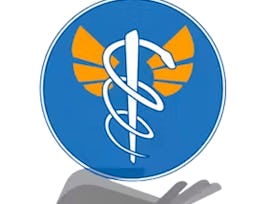What are some of the skills required when interviewing patients? What information is required when taking a patient history or



Foundations of International Psychiatry


Instructors: Greg Shields
Sponsored by Syrian Youth Assembly
16,652 already enrolled
(182 reviews)
Details to know

Add to your LinkedIn profile
4 assignments
See how employees at top companies are mastering in-demand skills


Earn a career certificate
Add this credential to your LinkedIn profile, resume, or CV
Share it on social media and in your performance review

There are 5 modules in this course
Welcome to The University of Melbourne Massive Open Online Course in International Psychiatry. This course has been designed to provide essential background knowledge and practical skills for health professionals working with mentally unwell patients. In this first week of the course, you will learn about the importance of good communication skills. Working effectively and collaboratively with patients is the goal of every mental health professional. This can often be challenging for practitioners, especially when patients are very unwell or reluctant to seek help. Good communication skills are essential to engage patients and families, and to build therapeutic relationships with our clients. In this module we will look at skills and concepts that come in useful when interviewing patients.
What's included
2 videos5 readings1 assignment2 discussion prompts
Welcome to the Clinical Skills module. The focus of this week's learning will on skills and concepts that come in useful when documenting a psychiatric patient history.
What's included
2 videos1 assignment1 peer review1 discussion prompt
The Mental State Examination (MSE) is a core skill in psychiatry, and an integral part of the patient interview. This week we will look at each component of the MSE, and how to classify, interpret, and document the patient’s presentation
What's included
4 videos6 readings3 discussion prompts2 plugins
Now that you are familiar with the Mental State Examination, you will be required to write and submit your second peer reviewed assignment for this course - documenting a mental state examination. Later this week, we'll take a closer look at 'the biopsychosocial model' - a framework for integrating different aspects of the patient’s life into a wholistic understanding of their mental illness. In this module, you will learn about the model, and apply it to a clinical scenario.
What's included
2 videos1 assignment1 peer review1 plugin
Health professionals occupy an important role in society, and there are expectations about how they conduct themselves in this role. Sufferers of mental illness can be particularly vulnerable, and it’s important that the law and professional ethics are followed to protect them. Furthermore, societal and cultural factors have a significant influence on the manifestation and management of mental illnesses. In this module we will explore these important topics.
What's included
5 videos6 readings1 assignment
Instructors


Offered by
Why people choose Coursera for their career




Learner reviews
182 reviews
- 5 stars
79.67%
- 4 stars
13.73%
- 3 stars
1.64%
- 2 stars
2.74%
- 1 star
2.19%
Showing 3 of 182
Reviewed on Jul 8, 2020
Thank you so much for the learnings dear doctors!~ <3
Reviewed on Dec 18, 2020
I benefitted a lot from the course. It's made me more interested about mental health.
Reviewed on Oct 31, 2020
comprehensive and useful. i wish there is more content and videos
Recommended if you're interested in Health

Universidad Nacional de Colombia

University of California, Santa Cruz

University of Colorado System

University of Illinois Urbana-Champaign

Open new doors with Coursera Plus
Unlimited access to 10,000+ world-class courses, hands-on projects, and job-ready certificate programs - all included in your subscription
Advance your career with an online degree
Earn a degree from world-class universities - 100% online
Join over 3,400 global companies that choose Coursera for Business
Upskill your employees to excel in the digital economy


